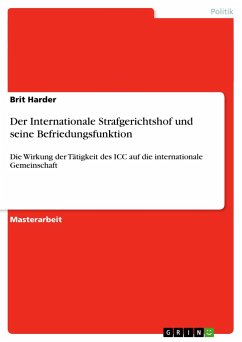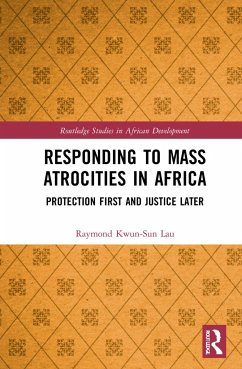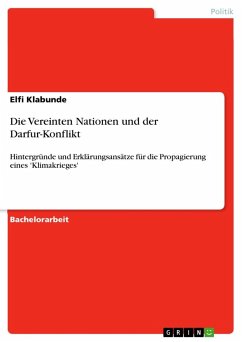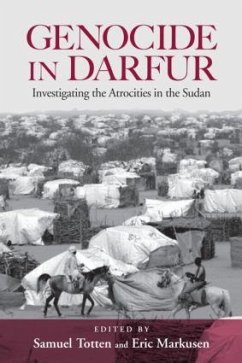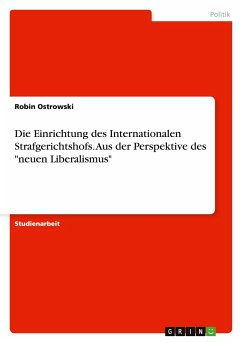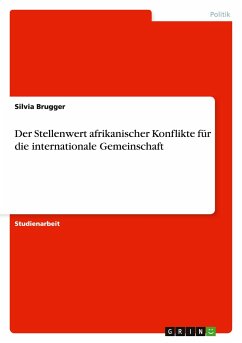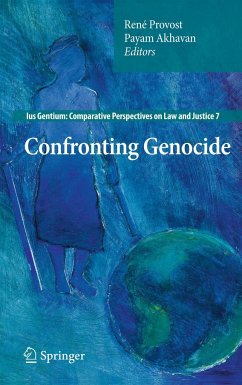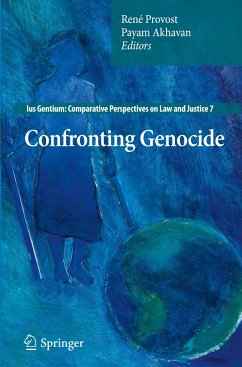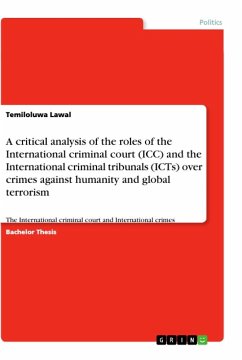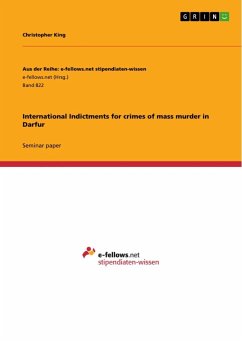
International Indictments for crimes of mass murder in Darfur

PAYBACK Punkte
0 °P sammeln!
Seminar paper from the year 2012 in the subject Politics - Topic: Public International Law and Human Rights, grade: 1,0, Indiana University (Department of Political Science), course: Politics of Genocide, language: English, abstract: "Until now, when powerful men committed crimes against humanity, they knew that so long as they remained powerful, no earthly court could judge them." (Annan, Kofi, 07.28.1998) These words of Kofi Annan, at that time secretary-general of the United Nations, were spoken shortly after the adoption of the Rome Statute of the International Criminal Court (ICC). They r...
Seminar paper from the year 2012 in the subject Politics - Topic: Public International Law and Human Rights, grade: 1,0, Indiana University (Department of Political Science), course: Politics of Genocide, language: English, abstract: "Until now, when powerful men committed crimes against humanity, they knew that so long as they remained powerful, no earthly court could judge them." (Annan, Kofi, 07.28.1998) These words of Kofi Annan, at that time secretary-general of the United Nations, were spoken shortly after the adoption of the Rome Statute of the International Criminal Court (ICC). They reflect the international effort to investigate and prosecute cruel crimes against humanity, war crimes, the crime of aggression and genocide. The intent of this paper is to present a stance on the question whether international indictments for crimes of mass murder in Darfur are appropriate and justified. It will be argued, that the international community has to punish perpetrators of mass violence under certain conditions, because of the following crucial points: (2.1) The international community has the moral and legal obligation to do so, (2.3) international justice should be pursued independently of regards to the peace process, (2.4) it may deter others and possibly produce domestic pressures and changes. Moreover, to be able to develop guidelines and policy recommendations the paper will also consider (2.2) the types of international punishment and who carries them out, as well as (2.5) examine the real capability of punishment and criteria of success. Before doing so, it is inevitable to (1.1) introduce the conflict, (1.2) the genocide debate and (1.3) the international response to the killings, because the stance on the use of international justice in Darfur is ultimately shaped by the interpretation of these issues.




